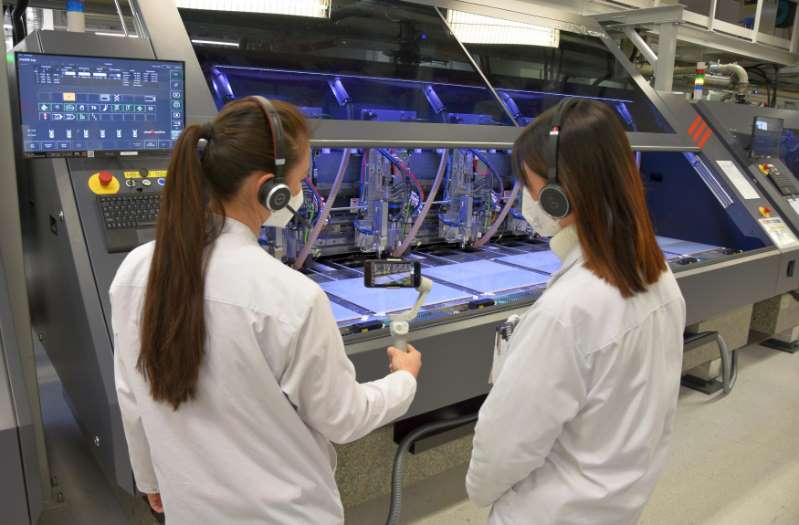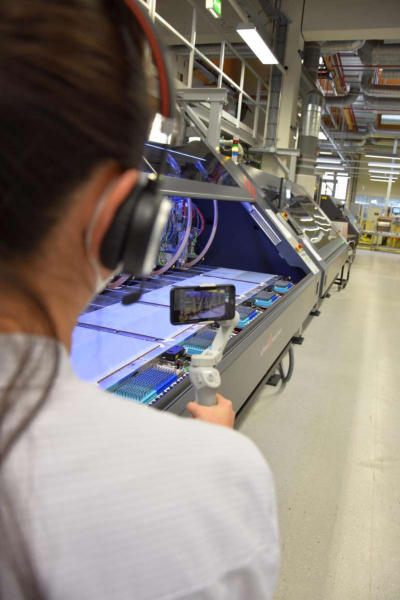Since the corona crisis is accompanied by travel restrictions, the printed circuit board manufacturer AT&S makes virtual audits possible.

Audits are essential for quality assurance in industry and are used specifically to follow production steps live and to check the quality of the products. While physical visits from corporate customers or partners were the norm before the Corona crisis, the current limited travel options make them almost obsolete.
The Austrian printed circuit board manufacturer AT&S has recognized the opportunity of virtual production and quality audits so that they can also be carried out in the current difficult times and in physical absence. It is no longer necessary to visit the production hall in which the printed circuit boards used worldwide are manufactured at AT&S.
Networked participants
The virtual audits were developed by Michael Monschein, Head of Corporate Quality Assurance at AT&S. All participants are connected individually via a collaboration tool and can communicate with one another, similar to a Zoom meeting. Within a very short time, the auditor is also able to access all the necessary documents and share various topics with the participants in real time.
Participants only receive access rights via an invitation from AT&S, as Monschein informs futurezone. “You get the access data from us and can then log in with them,” he says.

Switch to gimbal
According to him, the virtual visits were tested in advance in the course of internal audits. VR glasses were first used for these. “But we soon noticed that the image stability was a problem, so we opted for gimbals, in other words cell phone stabilizers. They deliver very good results, ”says Monschein. For the live broadcast, all you have to do is place a smartphone on the bracket. Movements are automatically balanced so that the images are no longer blurred.
From the middle of March, the virtual audits are to be carried out with the first customers in external field tests. It is planned that these “remote audits” will remain after the crisis – especially with regard to climate protection. It remains to be seen whether the service will also become standard. According to Monschein, this primarily depends on how popular the service will be. The “remote audits” should definitely continue to be offered.

